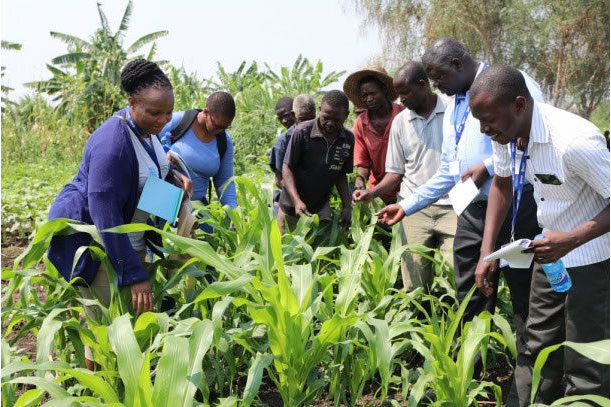By Isaac Atunlute
Recently, at its headquarters in Moor Plantation, Ibadan, the Institute of Agricultural Research and Training, or IAR&T, hosted a training on livestock and crop production.
This comprehensive training, which featured farmers and young graduates alike, spanned livestock and crop cultivation, including value addition, as part of a comprehensive approach towards addressing critical gaps in Nigeria’s agricultural sector.
Along with cultivating special crops and rearing farm animals, the participants gained insights into producing organic manure and post-processing after harvesting.
At a time when youth unemployment is high and inflation is rampant, experts reckon that a project like this provides a template of sustained resilience.
Programmes like these encourage many young people in the country to pursue a path in agriculture, thereby creating a thriving industry of farmers and entrepreneurs helping to boost food security in the country.
The training can also unlock a path to financial independence for those who have completed active service.
According to Gabriel Oluwatosin, the director and CEO of IAR&T, the initiative complements government interventions by expanding the skill gap across the grassroots.
The training, for instance, urged participants to employ their new knowledge in their farmland and encourage adoption among their counterparts.
This is hardly an isolated example. In May 2025, the Federal Government launched a free six-month poultry farming course for 120 youths in Plateau State under its National Youth Skills Acquisition Fund.
The programme blended classroom instruction with practical experience, at the end of which participants received certification indicating their expertise in sustainable poultry businesses.
These interventions are not without challenges, however. For them to scale, sustainable funding, community buy-in and follow-up resources are crucial.
However, IAR&T’s model is showing that the right structure, not seminars and slide decks, creates real-world impact.
As Nigeria continues to look inward for food and economic stability, small training centres like Moor Plantation’s show that cultivating human resources is just as important as planting seeds in the soil.
The Institute of Agricultural Research and Training (IAR&T) in Ibadan, Nigeria, recently hosted a comprehensive training program focusing on livestock and crop production, aimed particularly at farmers and young graduates. This initiative, which also included lessons in organic manure production and post-harvest processing, seeks to address critical gaps in Nigeria’s agriculture sector amid high youth unemployment and inflation. Such programs not only encourage youth to enter agriculture, promoting food security and economic independence, but also complement government efforts to expand agricultural skills at the grassroots level.
Participants are urged to apply their knowledge directly to their farm activities and spread it among peers. This approach aligns with previous initiatives such as the government's free six-month poultry farming course for 120 youths in Plateau State, blending education with practice for certified expertise. However, for these interventions to be sustainable and scalable, securing funding, community engagement, and providing ongoing resources are essential. Projects such as IAR&T’s demonstrate that effective structures, rather than just seminars, lead to impactful results, signifying the importance of human capital alongside agricultural growth for Nigeria's economic stability.






